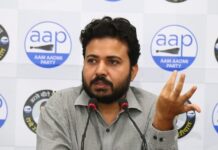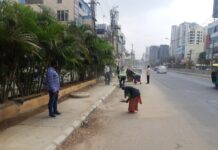New Delhi, The Supreme Court on Wednesday ordered the commencement of submission of claims and objections on inclusion of names in Assam’s National Register of Citizens (NRC) draft from September 25.
A bench of Justice Ranjan Gogoi and Justice Rohinton Fali Nariman said that the claims backed by 10 identity documents allowed by the court will continue for 60 days from the said date.
“We are doing this as a matter of concession,” the court said, citing recommendation by state coordinator Prateek Hajela and the Union of India.
“The process of receipt of claims and objections will now begin on and from September 25 and will remain open, tentatively, for 60 days effective from September 25”, the court added.
“We make it clear that insofar as filing of claims and objections are concerned it will be open for the claimants to rely on any one or more of the following 10 documents,” the court said.
On left-out five identity documents, the order said “… the issue is kept open till such time that… Project Coordinator Prateek Hajela offers his views/comments with regard to the statements made in the affidavit of the Union of India dated September 17.”
The court said that it was “putting on hold” the five identity documents. These will be open for consideration at a later stage after assessment of ground realities 30 days after commencement of filing of claims, it added.
The 10 documents that can be relied on for submitting claim for inclusion in the NRC list are land documents, permanent residence certificate, life insurance policy of LIC, any licence/certificate issued by any government authority, documents showing service/employment under government/PSU, bank/post office account, birth certificate issued by competent authority, educational certificate issued by board/university and record/processes of judicial or revenue court.
The five identity documents excluded for now are ration card, extract of NRC of 1951; extract/certified copy of electoral rolls up to midnight of March 24, 1971; refugee registration certificate issued up to March 24, 1971; and ration cards issued by competent authority with official seal and signature up to March 24, 1971 (midnight).
The court said that Hajela would offer his views on the “permissibility of introduction of any one or more of the (five identity) documents, at this stage of the updation process, in the light of the changed stand of the Union of India.”
The 10 identity documents are out of the 15 suggested by the state coordinator that around 40 lakh people can produce to stake claim for inclusion in the register.
As Attorney General K.K. Veugopal questioned exclusion of the five documents, Justice Nariman said: “We find these five documents can be manufactured and the “possibility of the misuse of documents is enormous.”
The Attorney General said that the “legacy and the family tree can also be bought.”
The court said: “We have not shut the door. At this stage we are going to receive the documents and review the situation after 30 days. After that, we can re-open for review the question and give them another 30 days.”
Those who have one of the 10 permitted documents can file claims and others can wait, the court said as the Attorney General said that the certified copy of the electoral rolls is a statutory document and can’t be fudged.
The Attorney General sought to know the court’s rationale of not sharing Hajela’s report submitted to the court earlier on recommendations for permitting second chance to leftout persons based on 15 identity documents.
“There is some material in the report which is not in public interest. Their disclosure will impede further course of action. We have to protect the officer (Hajela),” said Justice Gogoi.
As Venugopal said that the report was safe if given to the government, Justice Gogoi said: “Is there any doubt about the safety of the document? If not more, it is as safe.”
It said that the Attorney General’s request for a report copy wil be considered on October 23, adding that “we are of the view that having regard to the sensitive nature of some of the information contained therein which may affect the entire exercise undertaken and also the exercise that may be required to be undertaken by the Court the said report/reports should remain in the custody of the Court for the present.”
Asking Hajela to give his views on the issues flagged by the Centre and others, the court directed him not to share any information pertaining to the ongoing NRC updation with any executive, legislative or judicial authority of the state without court permission.
The matter will be heard next on October 23.









